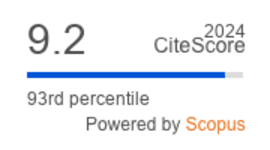Insights into COVID-19 Delta variant (B.1.617.2)
DOI:
https://doi.org/10.36877/pmmb.a0000243Abstract
Since beginning of the severe acute respiratory syndrome coronavirus 2 (SARS-CoV-2), different variants of concern (VOC) have been discovered. One of the variants that stood out was the Delta variant (B.1.617.2), first found in India. It caught worldwide attention due to its greater transmissibility than the progenitor strain and the first variant of concern (VOC)- Alpha variant (B.1.1.7). B.1.617.2 spread rapidly across the globe and became a VOC due to its high transmissibility, clinical implications, and impact on vaccine efficacy. This review discusses the background and prevalence of B.1.617.2 and its sensitivity to convalescent sera and vaccinated individuals. We will provide an insight into the impact B.1.617.2 has on vaccine efficacy and discuss the level and type of protection an individual could get by being vaccinated. We will also discuss briefly on the COVID-19 vaccine booster doses and whether it is needed.
Downloads
Published
How to Cite
Issue
Section
License
Copyright (c) 2021 Angel Yun-Kuan Thye, Ke-Yan Loo, Kyle Bond Chene Tan, Jenny May-Sim Lau, Vengadesh Letchumanan

This work is licensed under a Creative Commons Attribution-NonCommercial 4.0 International License.
Author(s) shall retain the copyright of their work and grant the Journal/Publisher right for the first publication with the work simultaneously licensed under:
Creative Commons Attribution-NonCommercial 4.0 International (CC BY-NC 4.0). This license allows for the copying, distribution and transmission of the work, provided the correct attribution of the original creator is stated. Adaptation and remixing are also permitted.

This broad license intends to facilitate free access to, as well as the unrestricted reuse of, original works of all types for non-commercial purposes.
The author(s) permits HH Publisher to publish this article that has not been submitted elsewhere.



.png)

.jpg)
